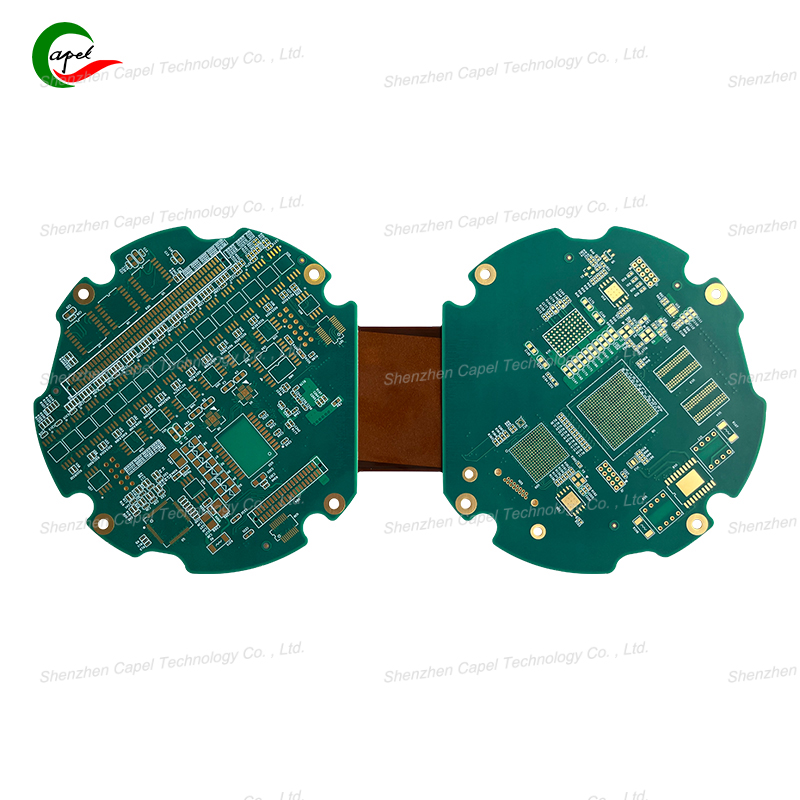Date: 2025-10-14
Let me share what we've learned about adhesive selection through years of rigid-flex PCB manufacturing and failure analysis. Choosing between acrylic and epoxy adhesives isn't just about initial bond strength - it's about how they'll perform years down the road under real-world conditions.
The Aging Performance Reality
Through accelerated life testing and field data analysis, here's what we've observed:
Epoxy adhesives truly shine in high-temperature environments. We recently reviewed test data from automotive under-hood applications where epoxy-maintained over 80% of its original bond strength after 1,000 hours at 150°C. The tightly cross-linked molecular structure creates a barrier that's remarkably resistant to thermal degradation.
However, epoxy has a significant weakness we discovered the hard way: UV exposure. In one outdoor application, epoxy-bonded rigid-flex boards showed noticeable embrittlement and adhesion loss within six months. The material literally became brittle enough to crack during routine handling.
Acrylic adhesives offer better flexibility and UV resistance. Our testing shows they maintain about 75% of initial strength after prolonged UV exposure, making them ideal for outdoor applications like solar inverters or outdoor monitoring equipment. The flexibility also helps in applications where some mechanical movement is expected.
Real-World Application Insights
The choice between these adhesives becomes clear when you consider the operating environment:
For automotive control units or industrial power electronics, we consistently specify epoxy. The thermal stability proves invaluable in these high-temperature environments. I remember one project where switching from acrylic to epoxy eliminated the delamination issues we were seeing in motor drive applications.
For consumer electronics or outdoor equipment, acrylic often makes more sense. The flexibility helps withstand the mechanical stresses of daily use, and UV resistance prevents degradation from light exposure. We've successfully used acrylic in wearable medical devices where occasional flexing occurs.
Critical Factors Beyond Basic Chemistry
Material thickness matters more than many designers realize. Thin adhesive layers (25-50μm) of epoxy can become brittle failure points, while thicker applications (75-100μm) maintain better stress distribution. We've standardized on 50μm for most rigid-flex applications as the optimal balance.
Surface preparation is equally crucial. Both adhesives require properly cleaned and treated surfaces. We've seen perfectly good epoxy fail because of contamination that would have been tolerable with acrylic. Our process now includes plasma treatment for all critical bonds regardless of adhesive type.
Practical Selection Guidelines
Based on our experience, here's how we approach adhesive selection:
When thermal performance is paramount (consistently above 100°C or thermal cycling), epoxy is the clear choice. The data doesn't lie - epoxy maintains its properties better under sustained heat.
When mechanical flexibility or UV exposure are concerns, acrylic typically performs better. The molecular structure allows for more movement and better resistance to ultraviolet degradation.
For cost-sensitive applications where temperatures stay moderate, acrylic often provides the best value. The 10-20% cost savings can be significant in high-volume production.
The Bottom Line
There's no universal "best" adhesive for rigid-flex PCBs. The right choice depends on understanding the specific environmental stresses your product will face throughout its lifespan. Through careful testing and real-world validation, we've found that matching the adhesive properties to the application requirements is the key to long-term reliability.
The most successful designs come from engineers who consider not just the initial bond strength, but how the adhesive will age under the specific conditions their product will encounter. This forward-thinking approach prevents the kinds of field failures that damage reputations and bottom lines.
related link:
Kaboer manufacturing PCBs since 2009. Professional technology and high-precision Printed Circuit Boards involved in Medical, IOT, UAV, Aviation, Automotive, Aerospace, Industrial Control, Artificial Intelligence, Consumer Electronics etc..